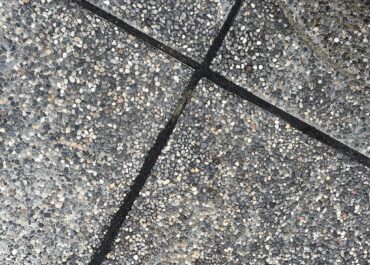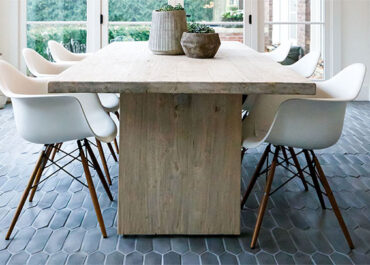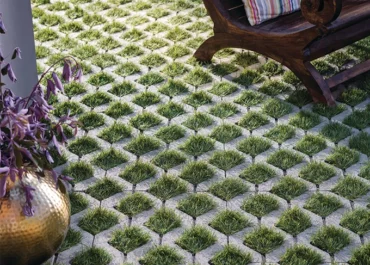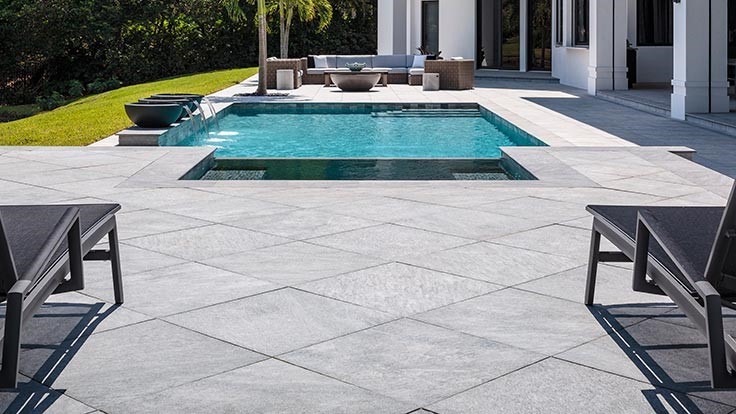
Porcelain pavers are growing up in popularity in the hardscape industry. The reason for that is because porcelain is a good alternative to natural stone. An alternative that is conquering the hearts of many homeowners. There’s a question that many people still ask: “Do porcelain pavers get hot?”
In this article, we are not only going to answer that question but also talk a little bit more about some of the characteristics of porcelain pavers and why it can be a good idea to include them in your paver patio design.

Why Choose Porcelain Pavers?
Porcelain is a ceramic material made out of a combination of several types of minerals, some of them being kaolinite and mullite. These materials are heated in a kiln and can reach temperatures as high as 1,400 °C. The vitrification of the mullite in these high temperatures is what gives porcelain its strength and translucent characteristic look.
Being cooked in these high temperatures makes porcelain very resistant to heat. So the answer is no, porcelain pavers do not get hot. That makes it a safe choice in a house that has kids running around barefoot or pets.
Not only a safe choice but an excellent one, in fact. Porcelain pavers not only are heat resistant but also scratch and stain-resistant. They are also very easy to maintain and surprisingly sturdy.
What tops it off is its natural resistance to weather and UV light. That means they won’t fade easily and, again, do no get hot in the sun. A porcelain paver when properly cared for can last for years and years.
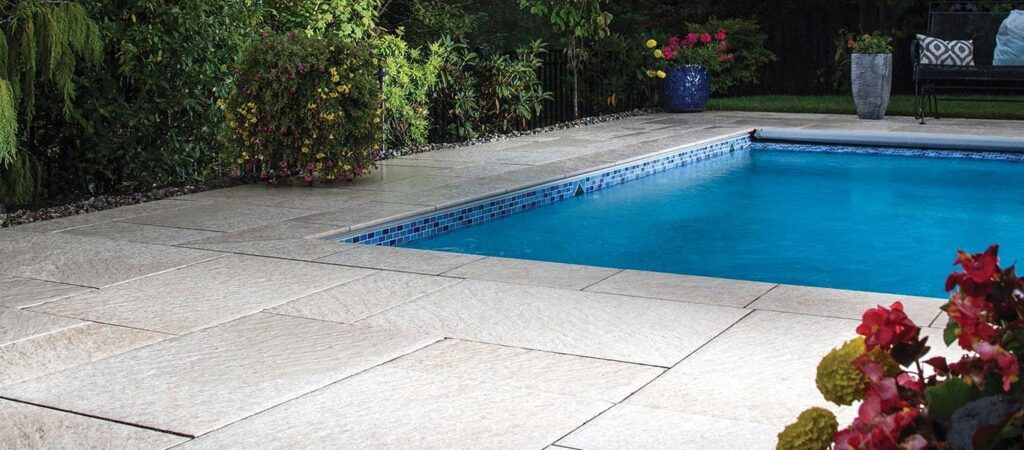
Disadvantages of Porcelain Pavers
So far we only had good things to talk about porcelain pavers. But make no mistake about it, they also have their fair share of disadvantages.
Since porcelain is a man-made material, it is cut almost exclusively using straight lines. That fits projects that have a more modern approach to it but can be a downer if want a rustic style.
Porcelain pavers are also harder to deal with in some situations. First, they are very dense. Porcelain pavers will range from 2cm to 3cm in thickness, so they are harder to transport and prone to brittleness during the installation process. They are also considerably harder to drill compared to concrete pavers because of their density.
And speaking of installation, they are typically harder to install than concrete pavers. Protection devices, like metal plates, need to be used under pavers on elevated installations to avoid any accidents.
On regular patio installations, the bedding for porcelain pavers needs to include a layer of fine sand. It also needs to be compacted and level with more care, especially if the patio will be used for vehicular applications, like in driveways and garages.
Porcelain pavers are also considerably more expensive than their natural stone or concrete counterparts. They can range from $7 to $10 per square foot. That is mainly due to the specificity of materials used in the fabrication of porcelain, but also because of the surprising longevity of the material.
Since we mentioned the longevity of porcelain pavers, let’s move on to talk about their advantages.
Advantages of Porcelain Pavers
As mentioned, durability is one of the main features of porcelains pavers. They are not only resistant to most day-to-day wear when properly installed but also incredibly resistant to weather conditions. Porcelain has low water absorption and can resist even the most intense freeze-thaw cycles.
The cleaning and maintenance of porcelain pavers are incredibly easy to do. Since they have virtually zero water absorption, spills that would otherwise be problematic with other materials can easily be wiped out of porcelain using the right products. This impermeability is also what prevents mold and moss from growing on porcelain pavers.
The aesthetic of porcelain pavers is also a high selling point. Porcelain has a rich catalog of colors and styles that can suit practically any creative vision in hardscape design. They make for more personalized and engaging spaces and can really bring a differential to outdoors design.
Professional Help

Besides being more expensive, the only real downside of porcelain pavers is that they are harder to move and install. The high price is worth it for the heat resistance (porcelain pavers don’t get hot), durability, and easy maintenance they can provide. So, if you decide to go for it, it is highly recommended that you invest in the best possible installation.
If you are around the Sarasota and Manatee Counties, in FL, we here at Eagle Pavers can provide you with the best materials for your installation. Our professionals have more than 14 years of experience choosing only what’s best in the supply of pavers.
You can reach us through the number +1 941-210-4192 or through our email at sales@eaglepavers.us. We’ll be happy to hear from you and help you with any paver supply need you might have.


